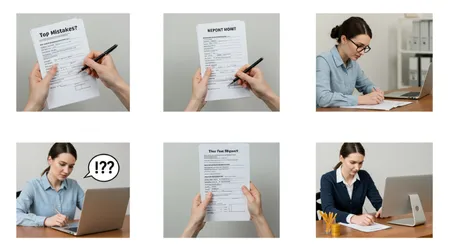Top Mistakes to Avoid When Applying for Family Support This Month

Avoid when applying for family support these words echo for UK families navigating the complex benefits system in 2025.
With rising living costs and evolving policies, securing family support like Child Benefit or Universal Credit is crucial.
Yet, many stumble into preventable errors that delay or derail their claims. This guide uncovers the top mistakes to sidestep, offering practical insights to ensure your application sails smoothly.
From missteps in documentation to misunderstanding eligibility, we’ll arm you with knowledge to boost your chances.
Let’s dive into the pitfalls and how to dodge them, so your family gets the support it deserves.
The UK benefits landscape is intricate, with reforms like the Pathways to Work Green Paper (published March 2025) reshaping disability and family support systems.
Missteps can cost time, money, or even eligibility. For instance, the Supporting Families Programme, running through 2025, aids vulnerable families but demands precise applications.
Our goal? To help you navigate this maze with confidence, avoiding common traps that snag thousands annually. Ready to protect your family’s financial lifeline?
Let’s explore the mistakes and master the process.
Mistake 1: Incomplete or Incorrect Documentation
Submitting incomplete paperwork is a surefire way to stall your claim. Avoid when applying for family support by gathering all required documents beforehand.
HMRC’s Child Benefit claims, for example, need proof of your child’s birth and your National Insurance number. Missing one can halt processing for weeks.
The GOV.UK portal emphasizes uploading clear, correct documents via the HMRC app.
A 2023 audit found 15% of delayed claims stemmed from missing paperwork. Double-check your submission to prevent this snag.
Imagine applying for a job but forgetting your CV it’s the same with benefits. Scan documents early, use digital copies, and verify they’re legible to save time.
++ UK Extends Medical Device Regulations Post-Brexit
For instance, Sarah, a single mum from Leeds, missed her Child Benefit payment because her son’s birth certificate was blurry.
She resubmitted and waited an extra month. Don’t let this happen.
Keep a checklist: ID, proof of address, bank details, and child-related documents. Store them securely in a folder, digital or physical, for quick access.

Mistake 2: Misunderstanding Eligibility Criteria
Assuming you qualify without checking is a costly error. Avoid when applying for family support by studying eligibility rules on GOV.UK.
Child Benefit, for instance, requires you to live in the UK and have a child under 16 (or 20 if in education).
The Pathways to Work Green Paper highlights stricter criteria for disability benefits, affecting family support packages. Misreading these can lead to outright rejections.
Also read: Universal Credit Transition: What to Expect as ESA Transfer Completes
Take Universal Credit: income thresholds and savings caps apply. If your savings exceed £16,000, you’re ineligible. Researching prevents wasted effort.
Consider Tom, a Birmingham dad, who applied for Universal Credit despite £20,000 in savings. His claim was denied, costing him weeks of stress.
Use GOV.UK’s benefits calculator before applying. It’s free, quick, and clarifies what you’re entitled to, saving you from eligibility blunders.
Mistake 3: Ignoring Deadlines and Updates
Missing deadlines can derail your application. Avoid when applying for family support by noting key dates, like the 31-day window to claim Child Benefit after a child’s birth.
Late submissions often face delays or penalties.
The Supporting Families Programme (2022-2025) requires local authorities to meet strict outcome deadlines. Families must align with these to secure funding.
In 2025, HMRC’s digital notifications via their app alert you to deadlines. Ignoring these risks missing payments or reapplying from scratch.
Read more: 30 Hours Free Childcare: Who Qualifies from September 2025?
For example, a Bristol family lost three months of Child Benefit because they didn’t update their claim after moving. Stay proactive with updates.
Set calendar reminders or use the HMRC app’s notification feature. Regularly check your account for policy changes or required actions.
Mistake 4: Providing Inaccurate Financial Information
Fudging financial details is a recipe for trouble. Avoid when applying for family support by reporting accurate income and savings.
Universal Credit adjusts payments based on real-time earnings, and errors trigger overpayment demands.
A 2024 DWP report revealed 12% of Universal Credit claimants faced repayment orders due to misreported income. Honesty prevents financial headaches.
Think of your application like a tax return: precision matters. Cross-check bank statements and payslips before submitting to ensure accuracy.
Lisa, a Manchester carer, underreported her part-time income, leading to a £1,200 repayment demand. She now triple-checks her figures monthly.
Use tools like online banking apps to track income. Submit updates promptly via GOV.UK to avoid penalties or payment disruptions.
Mistake 5: Neglecting to Update Personal Circumstances
Life changes new jobs, moves, or births must be reported. Avoid when applying for family support by updating your circumstances promptly.
Failing to notify HMRC about a new partner, for instance, can cut Universal Credit payments.
The Pathways to Work reforms stress real-time updates to maintain benefit eligibility, especially for disability-related support. Delays complicate claims.
Picture your benefits as a living document, like a diary. Each change in your life needs a new entry to keep payments flowing.
Mark, a London dad, didn’t report his wife’s new job, losing £200 monthly in benefits. He now updates changes within days.
Log into your GOV.UK account weekly to review and update details. Small tweaks now prevent big losses later.

Mistake 6: Overlooking Additional Support Options
Many families miss extra help, like the Disabled Facilities Grant. Avoid when applying for family support by exploring all benefits.
The £172 million uplift in 2025 funds home adaptations for disabled children.
GOV.UK lists add-ons like Carer’s Allowance, now tied to 16 hours at National Living Wage in 2025. Research uncovers these gems.
It’s like leaving money on the table at a buffet. Dig into every option to maximize your family’s financial cushion.
Clare, a Devon mum, discovered the Social Care Grant after months of struggling. It funded her son’s wheelchair ramp, easing daily life.
Browse GOV.UK’s “Benefits and financial support for families” section. Local councils also offer tailored advice for hidden support schemes.
Table: Key Family Support Benefits and Eligibility (2025)
| Benefit | Eligibility | Weekly Amount | Application Method |
|---|---|---|---|
| Child Benefit | Child under 16 (or 20 in education), UK resident | £26.05 (first child) | HMRC app/GOV.UK |
| Universal Credit | Low income, savings under £16,000 | Varies | GOV.UK online |
| Carer’s Allowance | 16+ hours caring, earnings under NLW limit | £81.90 | GOV.UK form |
| Disabled Facilities Grant | Disabled child/adult, low income | Up to £30,000 | Local council |
Why Do These Mistakes Matter?
Why risk your family’s stability with avoidable errors? Avoid when applying for family support to secure timely financial aid.
Each mistake missed documents, ignored deadlines, or misreported income delays or reduces payments, straining budgets.
The DWP’s 2024 data shows 20% of benefit applications faced delays due to applicant errors. These hiccups hit vulnerable families hardest, exacerbating financial stress.
Errors ripple like a stone in a pond. A delayed Child Benefit claim could mean £1,354 less annually, impacting groceries or school supplies.
Families like Sarah’s or Tom’s show how small oversights lead to big setbacks. Learning from their stories sharpens your application strategy.
Stay vigilant: use GOV.UK’s tools, set reminders, and consult local advice hubs. Precision now means peace of mind later.
Practical Steps to Get It Right
Preparation is your shield against errors. Avoid when applying for family support by following a clear plan.
Start with GOV.UK’s benefits calculator to confirm eligibility before applying.
Create a digital folder for documents birth certificates, IDs, payslips. Upload them via the HMRC app for speedy Child Benefit processing.
Set weekly reminders to check your GOV.UK account. Updates on income or address keep Universal Credit payments accurate and uninterrupted.
Visit local council websites for extra support, like the Supporting Families Programme. They guide you to lesser-known benefits tailored to your needs.
Ask for help if stuck. Citizens Advice offers free, expert support to navigate complex claims, ensuring you don’t miss a step.
Conclusion
Navigating family support in 2025 demands precision, patience, and proactivity.
Avoid when applying for family support by dodging these six critical mistakes: incomplete documents, misunderstood eligibility, missed deadlines, inaccurate finances, unreported changes, and overlooked benefits.
Each error risks delaying or slashing your payments, hitting your family’s budget hard. With reforms like Pathways to Work and tools like the HMRC app, you have resources to succeed.
Use GOV.UK’s calculators, stay organized, and tap local advice to get it right. Your family’s financial security is worth the effort start today, and claim what’s yours with confidence.
Frequently Asked Questions
Q: How quickly can I get Child Benefit after applying?
A: Claims via the HMRC app can be processed in three days, with payments every four weeks. Ensure all documents are clear.
Q: What if I miss a Universal Credit update deadline?
A: Late updates may reduce or stop payments. Log changes within days on GOV.UK to avoid penalties or repayment demands.
Q: Can I claim extra support for a disabled child?
A: Yes, the Disabled Facilities Grant (up to £30,000) funds home adaptations. Contact your local council for eligibility details.
Q: How do I know which benefits I’m eligible for?
A: Use GOV.UK’s benefits calculator. It’s free, quick, and lists all benefits based on your income, savings, and circumstances.
Q: What happens if I report incorrect income?
A: Misreporting triggers repayment orders, as seen in 12% of 2024 Universal Credit cases. Always verify income with bank statements.
